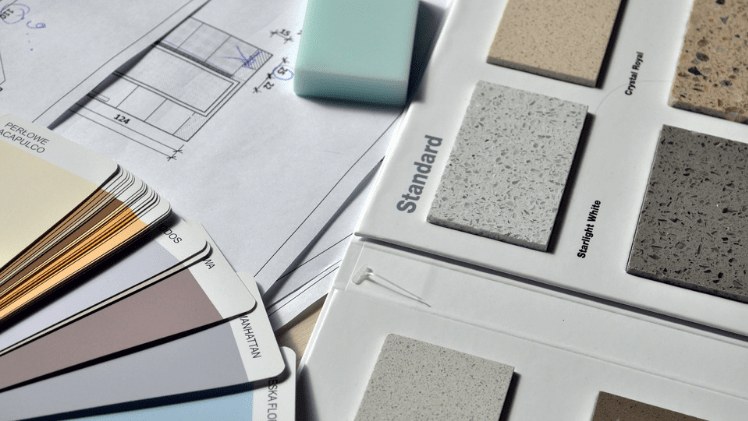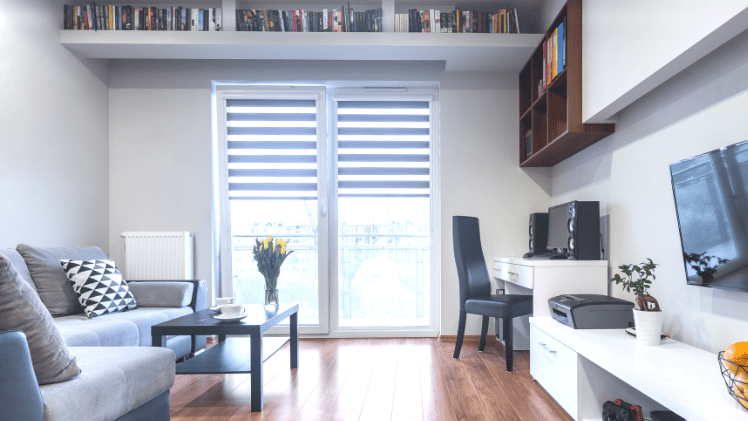Selling your home or an investment property is probably one of the biggest financial decisions you’ll make in your life. So, it’s important to go through the selling process with confidence, and alongside a trusted real estate agent to help you get the best outcome possible.
Below is a guide to selling property. We’ll cover selling costs, home improvements, methods of sale, marketing strategies, settlement and more.
How much does it cost to sell a house?
Before you decide to sell your house, there are a few things to think about including the costs of selling, whether or not you should renovate before going to market, and whether selling will get you a better return on investment than renting in the long term. Common costs of selling include:
- Your commission fee paid to your real estate agent
- Capital Gains Tax if you’re selling an investment property
- Auction costs
- Legal fees
- Costs of repaying your mortgage
- Preparing your house for sale (e.g. renovations, home staging)
If you’d like to calculate the cost of selling your property, you can use our Selling Costs Calculator.
Should I renovate my house before I sell?
 Renovating can increase the value of your property by tens, or even hundreds of thousands of dollars. However, it’s important not to over-capitalise on your property. Touch ups to your bathroom and kitchen can make a huge difference on your sale price. However, it’s sometimes smart not to make too many structural changes for two reasons – one, so the buyer has a blank canvas to work with which may increase buyer interest, and two, incase you don’t receive the return on investment you were expecting from the renovations . A good real estate agent will be able to recommend whether or not it’s worth renovating a house before selling. Before renovating, it’s a good idea to speak to a local real estate agent who will know what buyers in your suburb are looking for. They’ll be able to recommend which rooms to renovate based on your budget. We can help you find a local real estate agent here.
Renovating can increase the value of your property by tens, or even hundreds of thousands of dollars. However, it’s important not to over-capitalise on your property. Touch ups to your bathroom and kitchen can make a huge difference on your sale price. However, it’s sometimes smart not to make too many structural changes for two reasons – one, so the buyer has a blank canvas to work with which may increase buyer interest, and two, incase you don’t receive the return on investment you were expecting from the renovations . A good real estate agent will be able to recommend whether or not it’s worth renovating a house before selling. Before renovating, it’s a good idea to speak to a local real estate agent who will know what buyers in your suburb are looking for. They’ll be able to recommend which rooms to renovate based on your budget. We can help you find a local real estate agent here.
Should I sell my house or will I make a better ROI renting?
Most of the time, the short-term, ‘safer’ option is to sell. However, depending on the location of your property and other contributing factors, you might earn rental income that goes a very long way, giving you the ability to pay off your mortgage over time.
How much does it cost to sell a house?
Should I spend money on my property before selling?
Should I sell or rent my home?
Methods of selling your property
There are three common methods of sale – auction, private sale and sale by tender.
Auction
The competition between buyers on auction day generally results in buyers outbidding each other to secure your property, driving the price up to its highest possible market value. However, if there’s not much interest, it can result in one buyer negotiating a lower price as they’re aware there’ no other bidder at the auction.
Selling your house privately
Prospective buyers make their offers on your property and you accept, negotiate or decline the offers. Selling privately can result in less stress than selling via auction, however you are often restricted when it comes to negotiation.
Sale by tender
You receive secret offers from prospective buyers, who don’t know what competing buyers are bidding, nor do they have access to any publicly listed price. You go on to choose an end date, when all offers must be presented and you choose the best one. Nowadays, there’s also the option to sell your home yourself. However, this is risky if you’ve never done so before. Why use a real estate agent? There are plenty of reasons:
- They generally have large buyer databases
- Expert local and market knowledge
- Marketing strategies
- Auctioneer skills
- Experience with legal documentation
- No upfront fees
- Tips on increasing the value of your home
- Negotiating a better price with a potential buyer
Which method of sale is right for your property?
Selling property by private sale – the pros & cons
Selling property by tender – the pros & cons
Selling property by auction – the pros & cons
How to sell a unit, apartment or townhouse as opposed to a house
 The type of property you’re selling will have an effect on the costs involved, the appropriate method of sale, preparing it for market and most importantly your choice of real estate agent. Consider the following:
The type of property you’re selling will have an effect on the costs involved, the appropriate method of sale, preparing it for market and most importantly your choice of real estate agent. Consider the following:
Maintenance
A large house may require maintenance and touch ups before you put it on the market, whereas units are generally maintained by a body corporate, who will maintain the unit and it’s facilities on a regular basis.
Competition
Houses often have more unique features which you can highlight in your selling campaign. Whereas if you’re selling a unit in a block or area where there are lots of other similar units for sale, your real estate agent will need to think of strategies to break through the competition.
Size
You’ll want to de-clutter both houses and units before selling. You can work with your real estate agent to maximise the space prior to photography and inspection time, especially if you’re selling a smaller unit or apartment.
Your agent’s buyer network
You’ll want to find a real estate agent who has a network of prospective buyers looking for a property like yours. For example, an agent specialising in unit sales will have a buyer database who are specifically looking for a smaller property.
Can a rental property be sold during a fixed-term tenancy?
If your unit, apartment or townhouse is currently being rented, you cannot force them to leave until the fixed term is up, and you will need to provide them with 14 days notice. However, you may be able to negotiate breaking the lease with the tenants – your real estate agent will be able to help you understand the legalities here.
Why selling a unit is a different game compared to houses
How to: sell your tiny apartment How to handle tenants while selling your property?
How do I sell a property while tenanted?
Increasing the value of your house
 Wondering how much money to spend on your home before you sell? And where to spend the money? In terms of renovations, the most important thing is that your house is fully functional, and that you’ve repaired any wear and tear to the property. If you’re thinking about painting, redoing floors, or making any structural changes before selling, it’s a good idea to talk to a real estate agent so they can give you tips on what buyers in the local market are looking for. Common renovations before selling include kitchen, bathroom and outdoor entertainment areas as well as increasing ‘curb appeal’ by doing up the front of your house. Your real estate agent may also recommend home staging. It’s common to hire someone to stage your home, which generally involves getting a professional in to display your home in a way that will appeal to the maximum amount of buyers.
Wondering how much money to spend on your home before you sell? And where to spend the money? In terms of renovations, the most important thing is that your house is fully functional, and that you’ve repaired any wear and tear to the property. If you’re thinking about painting, redoing floors, or making any structural changes before selling, it’s a good idea to talk to a real estate agent so they can give you tips on what buyers in the local market are looking for. Common renovations before selling include kitchen, bathroom and outdoor entertainment areas as well as increasing ‘curb appeal’ by doing up the front of your house. Your real estate agent may also recommend home staging. It’s common to hire someone to stage your home, which generally involves getting a professional in to display your home in a way that will appeal to the maximum amount of buyers.
Should I spend money on my property before selling?
Top 10 tips to increase your home’s value before selling
Should I paint before selling my house?
Best repairs to undertake before selling a house
How to advertise your house for sale
If you’re selling a house in a competitive market, you’ll want to break through the competition with a successful marketing campaign. You can work with your agent to find out advertising tips for selling your house. Common advertising methods include:
- Your online listings
- Newspaper and magazine listings
- Photography
- Videography
- Floor-plans
- 3D visuals and virtual tours
- Flyers
- A signboard
- Buyer database communications
- Social media advertising
- Home staging
Real estate agents will have different approaches to marketing. That’s why, it’s a good idea to discuss all of your selling objectives with your agent so they can deliver the appropriate marketing strategy. For example, if you want to sell quickly, you’ll need your agent to work hard and fast to advertise your property to prospective buyers in a shorter amount of time. Or, if you have higher than average pricing expectations, you’ll want to make sure your agent helps you with tips for home staging, creates a ‘dream’ online listing and holds multiple inspections to increase buyer interest.
Advertising costs when selling a house
What sort of marketing costs should I expect when selling a home?
Listing a house for sale on the internet
Marketing when selling your property
Open inspections versus private inspections when selling your property
While your house is listed
While your property is listed, it’s important to make sure your property remains immaculate for all inspections. As mentioned, it’s a good idea to stage your home throughout the entire listing, so that you can target ideal buyers. Throughout your selling campaign, your real estate agent will be able to help you with inspections tips, and help you understand how auction day takes place if you’re holding one. If you feel at any point that your real estate agent isn’t working hard enough to meet your expectations, it’s important to bring up your concerns with them in person.
Selling your home after your listing has expired with your current real estate agent
Negotiating offers when selling a house
Disputes with real estate agents: the 5 most common triggers and how to solve them
Steps to a successful home staging
After you sell
 There are a few things you’ll need to consider in relation to conveyancing. Ideally, you’ll want to work with your conveyancer or solicitor to discuss:
There are a few things you’ll need to consider in relation to conveyancing. Ideally, you’ll want to work with your conveyancer or solicitor to discuss:
- Documentation, including the Contract of Sale
- Settlement period (generally 30, 60 or 90 days)
- Settlement fees
- The transfer of The Certificate of Title
What does settlement mean? Settlement is the final stage of your property sale where the buyer completes their payment of the contract price to the vendor, and takes legal possession of your property. What’s included in a Contract of Sale?
- Conditions of the sale, such as financing information or additional building inspections
- The names of the vendor and purchaser
- The property’s address
- The amount of deposit that must be paid
- The sale price of the property
- The date of the property settlement
- Whether the property will be available as a vacant possession, or if it is subject to a lease
- Other personal property sold as part of the package deal
How early can I receive my funds if I sell my property?
Who pays stamp duty when selling a property?
Should buyers and sellers use the same conveyancers or solicitors?
Conveyancing when selling a property?
Should I use a conveyancer or solicitor when selling my house?
Reasons why houses don’t sell
There are a few reasons why houses don’t sell by the end of the listing period. These could include:
- Unrealistic pricing
- An ineffective marketing strategy
- An oversupply of properties for sale
You may need to consider changing real estate agents if you’re unhappy with their performance. Or, depending on the property market, it may be smarter to hold on your property sale and wait until it heats up again. How often do real estate contracts fall through? In rare cases, real estate contracts can also fall through after the property has been purchased, if there’s a clause in the Contract of Sale whereby the seller has the opportunity to cancel their contract within a certain time period. Reasons include:
- Buyer’s remorse
- Buyer gets a low valuation
- Buyer’s mortgage loan gets rejected
- Buyer is unable to sell their own home
A good real estate agent will work with you to turn the situation around by trying to find a new buyer straight away.
Why property sales can fall over
Selling your home after your listing has expired with your current real estate agent
